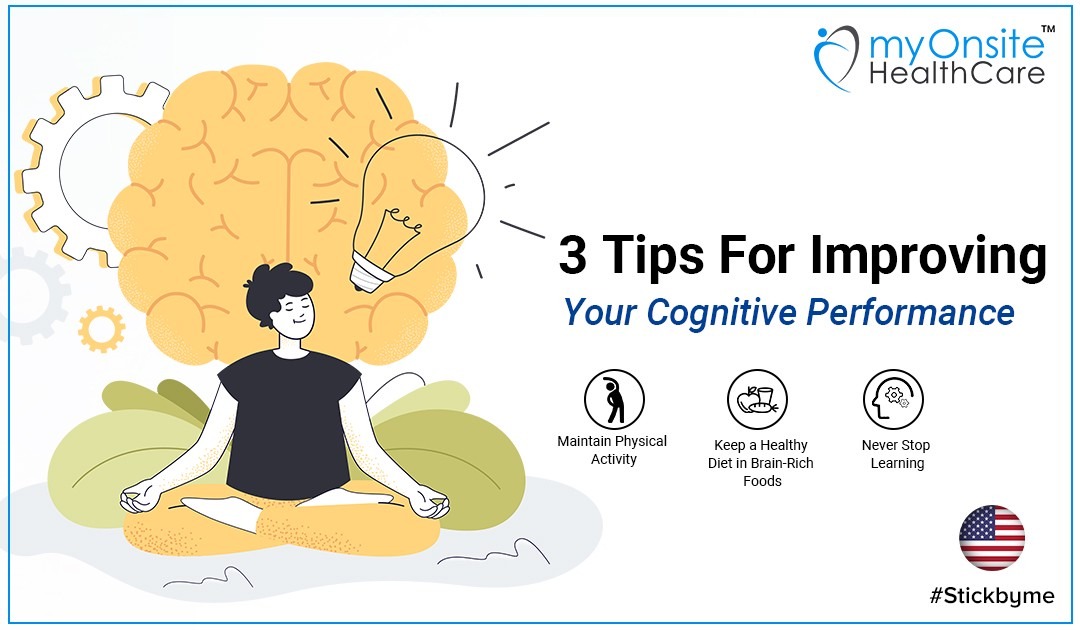Keeping your brain fit and healthy is just as important as the rest of your body. As we age, the ability for our brains to continue acting at peak performance unfortunately dips into a decline. These declines may affect some people worse than others. There are many neurological conditions that present with cognitive and executive dysfunction. Fortunately, there is hope as we can take notice and preventative measures to help our brains stay as healthy as possible. Our health habits not only affect our physical health in a variety of ways but also are critical in maintaining cognitive performance and can help to reduce mental decline as we age.
- Maintain Physical Activity
Many studies show that staying physically fit improves cognitive function and memory. During the aging process, physical exercise is suggested be an adjunctive treatment with potential for reducing neuropsychiatric disorders and cognitive impairment. It has also been suggested that physical activity may prevent the onset or delay neurodegenerative processes. Moderate exercise has many health benefits including the increase in cerebral blood flow and oxygenation through aerobic exercises to the brain. Researchers have shown improvements in neurotransmitter systems, neurotrophic factor and neurogenesis following exercise in ageing patients.
Did you know?
- Short running sessions are linked to improved blood flow in the prefrontal cortex and improvements in overall mood.
- Keep a Healthy Diet in Brain-Rich Foods
The foods you eat play a huge role in keeping your brain healthy and can improve memory and executive functioning. A balanced diet is important for supplying the nutrients your entire body needs to function effectively. A diet that is deficient in key nutrients is more disease prone, infection prone and may suffer from fatigue and low performance outputs. There are many foods that are shown to be healthy for your brain. In particular, foods rich in nutrients like omega-3 fatty acids, antioxidants and vitamins are known to support brain health. Foods particularly rich in these healthful compounds include seeds, nuts, leafy green vegetables, fatty fish and berries. Omega-3s may slow age-related mental decline and help to prevent neurodegenerative diseases. A diet that lacks omega-3s is linked to learning dysfunction, and even depression. Antioxidants act against both oxidative stress and inflammation in the brain. These factors can contribute to aging and cell death. Vitamins can help defend your brain against damage from free radicals and other inflammatory markers. Some diets, such as the mediterranean diet, a diet rich in vegetables, whole grains, fish, and olive oil have been linked in research studies to higher cognitive function which further demonstrates the importance of diet.
Did you know?
- Regular intake of highly processed foods, such as fast food, is linked to depression.
- Never Stop Learning
Your brain was designed to constantly be learning. The brain is a magical organ that never shuts off. It is constantly processing our surroundings and storing memories to make better decisions in the future. Make the effort to create a “Growth Mindset”. This sort of mindset maintains that through continuous learning you can further improve your abilities and create successes for yourself. Keeping an open mindset to new ideas, new adventures and new opportunities will allow you to continue to create new mental connections in the brain. The synaptic connections in the brain continue to grow and form with new experiences. Learning a new skill that will mentally challenge you has been shown to improve cognitive function. Indeed, elderly patients who stay active with mentally challenging tasks have shown a reduction in cognitive decline and even the onset of Alzheimer’s disease.
Did you know?
- Doing crossword puzzles regularly are linked to improvements in attention, executive function and working memory.

